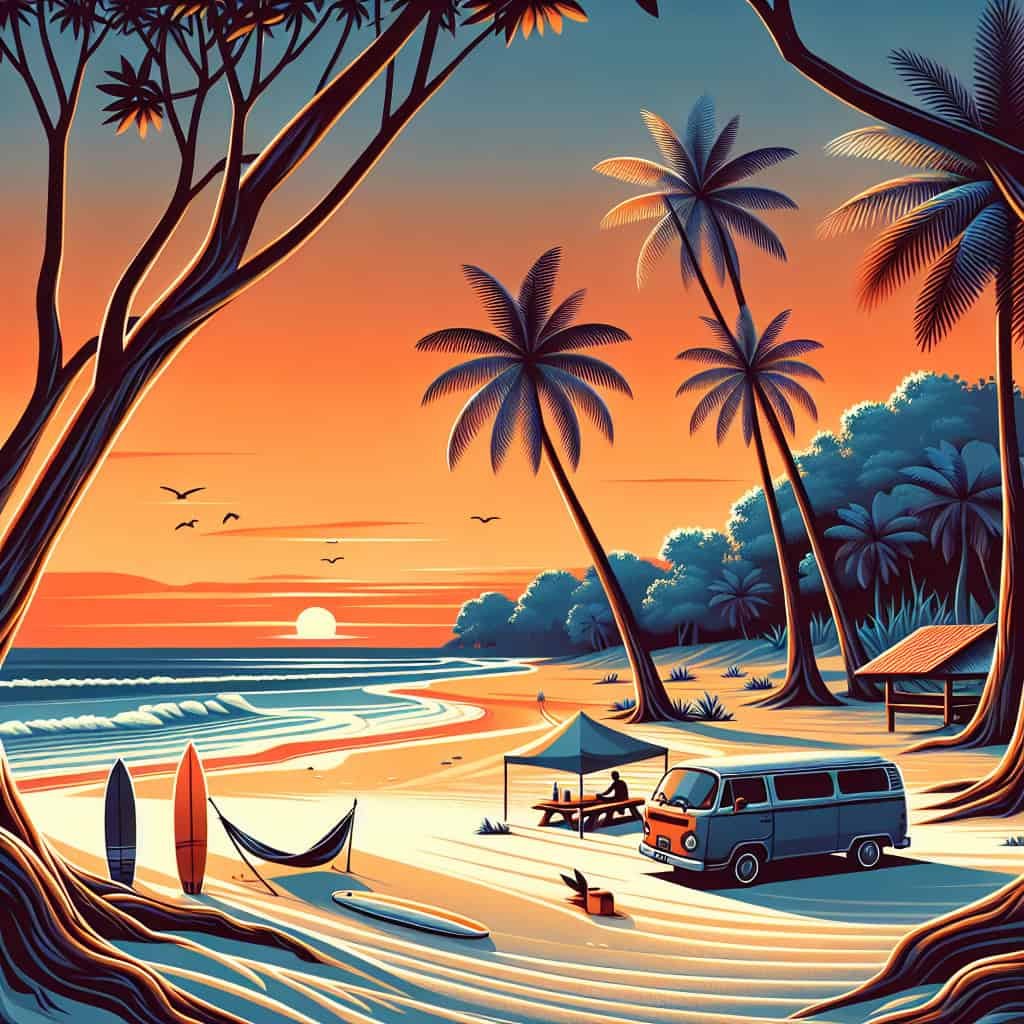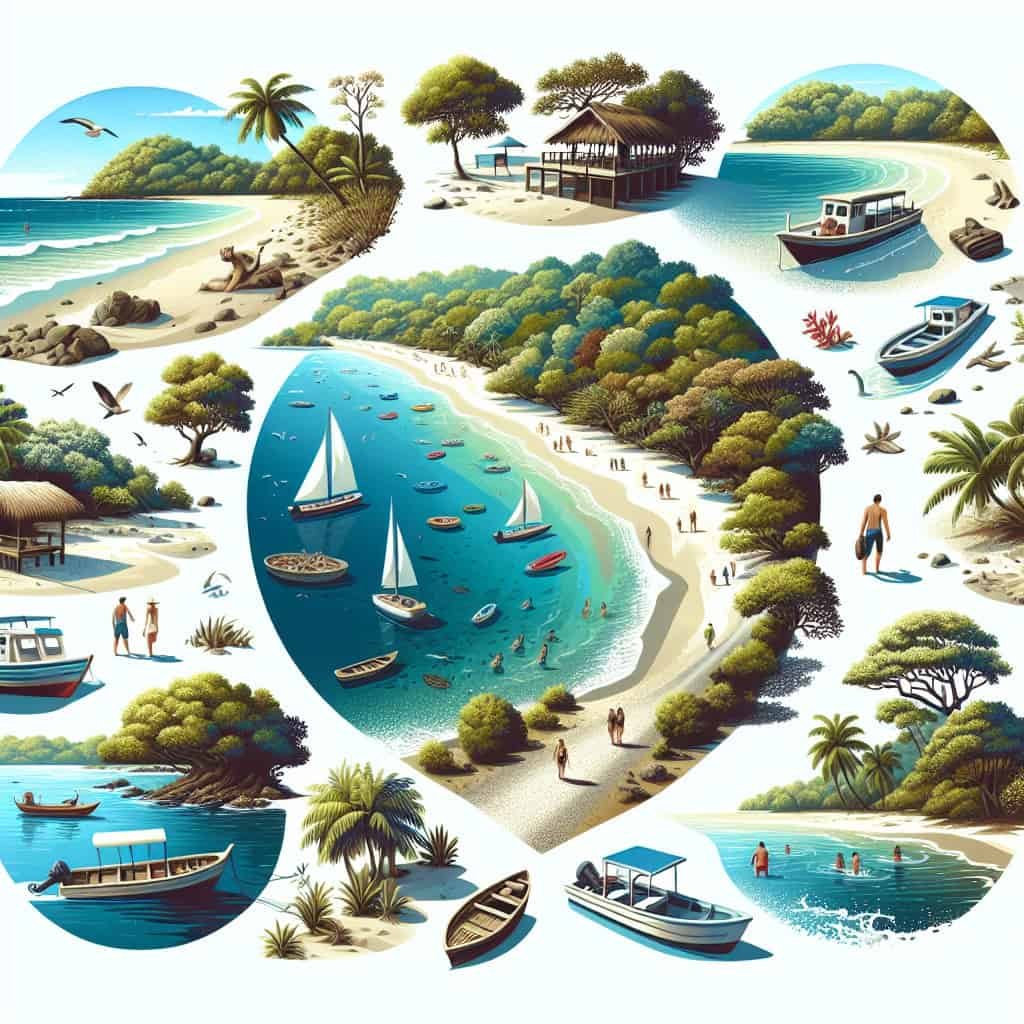If you’re seeking tranquility and seclusion on your beach getaway, Nicaragua has some hidden gems that will fulfill your desires. Exploring remote or less touristy beaches in Nicaragua may seem like a challenge at first, but with a little guidance, you’ll find yourself surrounded by pristine shores and untouched beauty. From secluded coves to undiscovered stretches of sand, this article will provide you with insider tips and tricks on how to access these secret slices of paradise. So pack your sunscreen and get ready to embark on an adventure to Nicaragua’s lesser-known coastal havens.
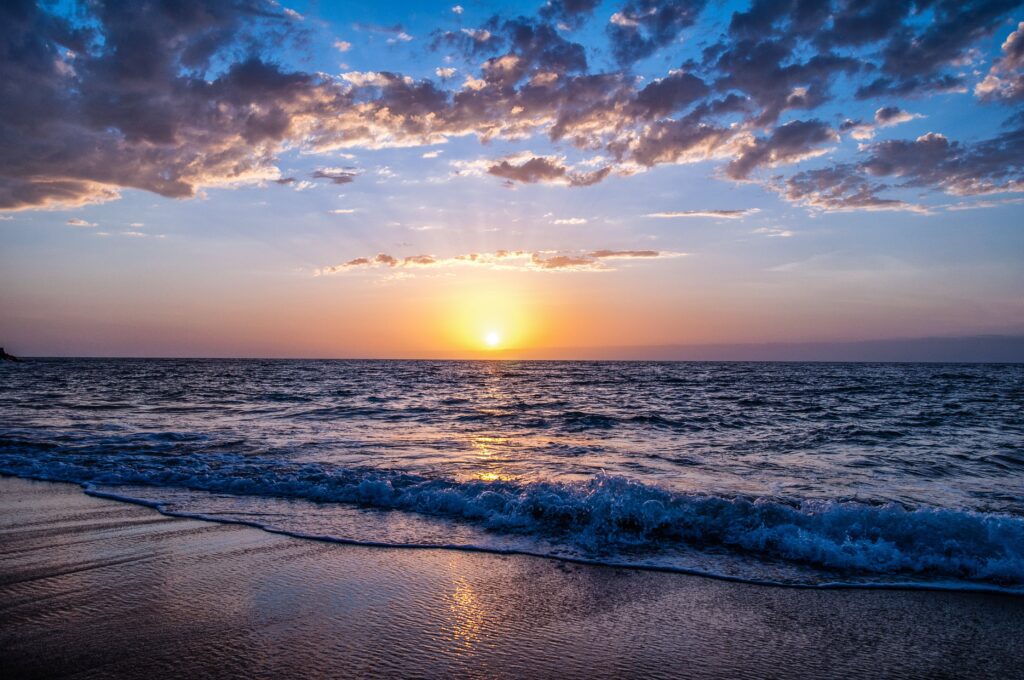
Choosing the Right Region
When it comes to accessing remote or less touristy beaches in Nicaragua, the first step is to choose the right region to visit. Nicaragua is blessed with beautiful coastlines, and each region offers its own unique experiences. Here are three popular regions to consider:
1.1 Pacific Coast
The Pacific Coast of Nicaragua is famous for its stunning beaches and world-class surf breaks. One of the most popular destinations on the Pacific Coast is San Juan del Sur. This vibrant beach town offers a range of accommodations, from luxurious resorts to budget-friendly hostels. If you’re looking for a more laid-back experience, Playa El Coco and Playa Gigante are worth checking out. These secluded beaches are perfect for those seeking tranquility and solitude.
1.2 Corn Islands
Located off the eastern coast of Nicaragua, the Corn Islands are a hidden gem in the Caribbean Sea. Big Corn Island and Little Corn Island both boast pristine beaches with crystal-clear waters. The Corn Islands are relatively undeveloped, making them a great choice for travelers looking to escape the crowds. Whether you prefer lounging on the beach or exploring the vibrant marine life through snorkeling or diving, the Corn Islands have something for everyone.
1.3 Caribbean Coast
The Caribbean Coast of Nicaragua offers a unique blend of Afro-Caribbean and indigenous cultures. While the region may be less developed than the Pacific Coast, it rewards visitors with untouched beaches and a laid-back atmosphere. Pearl Lagoon, Bluefields, and Corn River are some of the noteworthy destinations on the Caribbean Coast. These areas provide opportunities to immerse yourself in the local culture and explore off-the-beaten-path beaches.
Researching Remote Beaches
Once you have chosen the region you want to visit, it’s time to start researching remote beaches in that area. Here are a few methods to help you find hidden gems:
2.1 Online Sources
The internet is a great resource for finding information about remote beaches in Nicaragua. Many travel websites and blogs provide detailed guides and recommendations. Look for websites that specialize in off-the-beaten-path destinations or remote beach exploration. These sources often include helpful tips and insights from experienced travelers who have already discovered the hidden treasures of Nicaragua.
2.2 Local Recommendations
Don’t underestimate the power of word-of-mouth recommendations. When you arrive in Nicaragua, ask the locals for their favorite remote beaches. Natives and long-time residents often have insider knowledge of lesser-known spots that may not be widely mentioned in guidebooks or online platforms. Whether you’re chatting with taxi drivers, hotel staff, or restaurant owners, locals are usually more than happy to share their favorite secluded beaches.
2.3 Travel Forums
Travel forums and online communities are another valuable resource for finding information about remote beaches in Nicaragua. Platforms like TripAdvisor or Lonely Planet’s Thorn Tree forum allow travelers to connect and share their experiences. Browse through the threads or post your own question to gather insights from fellow beach enthusiasts. Many seasoned travelers are eager to share their favorite hidden spots and provide valuable advice on how to reach them.
Transportation Options
Once you have gathered information about remote beaches, it’s time to consider transportation options for reaching these hidden gems. Nicaragua offers a range of transportation choices, each with its own advantages and considerations:
3.1 Public Buses
Public buses are an affordable and commonly used mode of transportation in Nicaragua. These buses connect major cities and towns, making them a convenient option for accessing remote beaches. However, keep in mind that public buses can be crowded and may not always have direct routes to the beach destinations you have in mind. It’s essential to plan your route in advance and check the bus schedules to ensure you can reach your desired destination.
3.2 Private Transportation
For more flexibility and convenience, consider hiring private transportation. Private taxis or shuttle services can take you directly to remote beaches, even those off the beaten path. This option provides a more comfortable and efficient way of reaching your destination, especially if you’re traveling with a group or carrying a lot of equipment. While private transportation may be more expensive, it allows you to customize your itinerary and explore remote beaches at your own pace.
3.3 Boat Services
In coastal regions like the Corn Islands or the Caribbean Coast, boat services are a common mode of transportation. These boats provide access to secluded beaches and islands that are not accessible by road. Boat services vary in frequency and availability, so it’s important to check the schedules in advance. Keep in mind that weather conditions can impact boat services, so always have a backup plan in case of cancellations or delays.
Accessing Pacific Coast Beaches
If you’ve chosen to explore the Pacific Coast of Nicaragua, here are three stunning beaches to consider:
4.1 San Juan del Sur
San Juan del Sur is a bustling beach town located on Nicaragua’s Pacific Coast. This lively destination offers a range of beaches to suit every traveler’s preference. Playa Maderas is a popular surf spot, known for its consistent waves and vibrant surf culture. If you’re searching for a more secluded beach, Playa Hermosa is just a short drive away. This pristine beach is surrounded by lush greenery and offers a tranquil escape from the hustle and bustle of the town.
4.2 Playa El Coco
Located near the town of San Juan del Sur, Playa El Coco is a hidden gem that remains relatively untouched by tourism. This remote beach boasts glistening turquoise waters, soft white sands, and breathtaking views. The beach is part of a protected wildlife refuge, providing an opportunity to spot diverse marine and bird species. With limited infrastructure and development, Playa El Coco offers a truly off-the-grid experience for those seeking solitude and natural beauty.
4.3 Playa Gigante
Playa Gigante is a charming fishing village turned surf town on the Pacific Coast. This hidden beach gem offers uncrowded waves, making it a paradise for surfers of all levels. Playa Gigante retains its authentic Nicaraguan charm, with local fishermen setting out in colorful boats each morning. The relaxed atmosphere and stunning coastal scenery make Playa Gigante a perfect destination for those seeking a quiet and unspoiled beach experience.
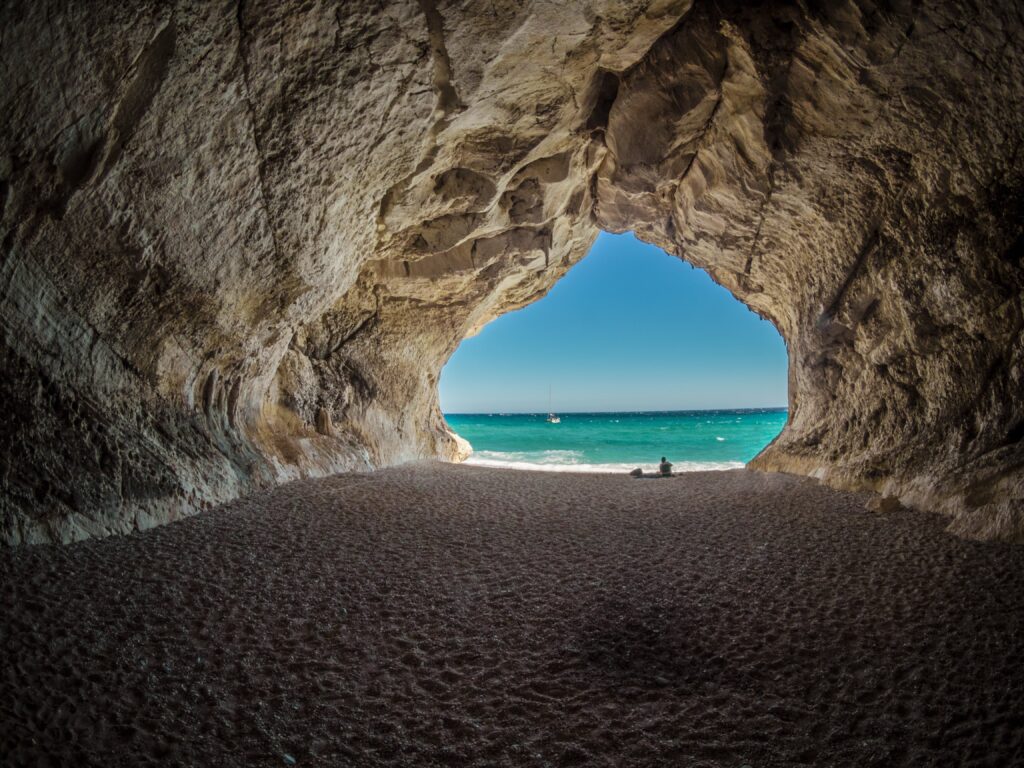
Exploring the Corn Islands
If the Corn Islands have captured your interest, here are two islands to explore:
5.1 Big Corn Island
Big Corn Island is the larger of the two Corn Islands and offers a range of activities for beach enthusiasts. Here, you can relax on pristine beaches, go snorkeling to admire the vibrant coral reefs, or even embark on a fishing excursion. The island is also home to charming local communities, where you can experience the unique Afro-Caribbean culture through delicious cuisine and lively music. With its laid-back vibes and breathtaking scenery, Big Corn Island is the perfect destination for a tropical getaway.
5.2 Little Corn Island
For a more remote and tranquil experience, head to Little Corn Island. This tiny island is a haven for backpackers and beach lovers seeking an off-the-grid adventure. With no cars or roads, Little Corn Island is an oasis of peace and serenity. You can spend your days lazing on pristine beaches, snorkeling in the clear waters, or exploring the lush jungles that cover the island. The lack of modern infrastructure adds to the island’s charm, making it an ideal destination for those looking to disconnect from the outside world.
Discovering the Caribbean Coast
The Caribbean Coast of Nicaragua offers a unique cultural experience and remote beaches to discover. Here are three destinations worth exploring:
6.1 Pearl Lagoon
Pearl Lagoon is a small coastal town that provides a glimpse into the rich Afro-Caribbean culture of Nicaragua. The beaches around Pearl Lagoon are untouched and offer a tranquil escape from the busy city life. Take a boat ride to the nearby Pearl Keys, a group of small islands with pristine white sand beaches and crystal-clear waters. This hidden gem is less frequented by tourists, allowing you to immerse yourself in the natural beauty of the area.
6.2 Bluefields
Bluefields is the capital of the South Caribbean Autonomous Region and serves as a gateway to the remote beaches along the Caribbean Coast. The city itself has a vibrant culture, blending African, Indigenous, and European influences. From Bluefields, you can arrange boat trips to secluded beaches, such as Pearl Cay and Corn Island. These off-the-beaten-path destinations offer a glimpse into the unique culture and natural beauty of the Caribbean Coast.
6.3 Corn River
Corn River is a hidden gem tucked away in the jungle along the Caribbean Coast. This remote area is home to pristine beaches, lush mangrove forests, and diverse wildlife. To reach Corn River, you’ll need to embark on a boat journey through winding rivers and dense foliage. The effort is well worth it, as Corn River rewards visitors with tranquil beaches where you can relax, swim, and enjoy the untouched natural surroundings.

Engaging with Local Communities
One of the best ways to enhance your beach experience in Nicaragua is by engaging with local communities. Here are three ways to connect with the locals and immerse yourself in the Nicaraguan culture:
7.1 Homestays
Consider staying with a local family through a homestay program. This allows you to experience firsthand how Nicaraguans live and create lasting connections with the local community. Homestays often include meals prepared by your hosts, giving you the opportunity to try traditional dishes and learn about local customs. As you relax on remote beaches, you’ll have the chance to engage in meaningful conversations and gain a deeper appreciation for the local way of life.
7.2 Volunteering
Another way to engage with local communities is through volunteering. Numerous organizations in Nicaragua offer volunteer programs focused on conservation, education, and community development. By participating in such programs, you can make a positive impact while exploring remote beaches. Volunteering not only allows you to interact with locals but also gives you the chance to learn more about the environmental and social challenges faced by Nicaraguan coastal communities.
7.3 Cultural Activities
Participating in cultural activities is an excellent way to connect with the local communities along Nicaragua’s coastlines. Look for opportunities to learn traditional dances or try your hand at cooking local cuisine. Attend community events or festivals to witness traditional music performances and colorful parades. These activities provide a window into the vibrant cultures of Nicaragua and foster meaningful interactions with locals who take pride in sharing their traditions.
Pack Accordingly
When visiting remote beaches in Nicaragua, it’s essential to pack accordingly. Here are three essentials to consider:
8.1 Sun Protection
Nicaragua’s sunny climate requires adequate sun protection. Pack sunscreen with a high SPF, sunglasses, and a wide-brimmed hat to shield yourself from the sun’s rays. Lightweight and breathable clothing that covers your arms and legs will also help protect your skin from sunburn.
8.2 Insect Repellent
Insects are a common feature in tropical environments, so remember to pack insect repellent. Choose a repellent that contains DEET or other recommended ingredients to effectively ward off mosquitoes and other biting insects.
8.3 Beach Essentials
Don’t forget to bring your beach essentials. Pack a high-quality beach towel, swimwear, and snorkeling gear if you plan on exploring the underwater world. A dry bag or waterproof case will protect your valuables from water damage. Also, remember to pack a reusable water bottle to stay hydrated throughout your beach adventures.
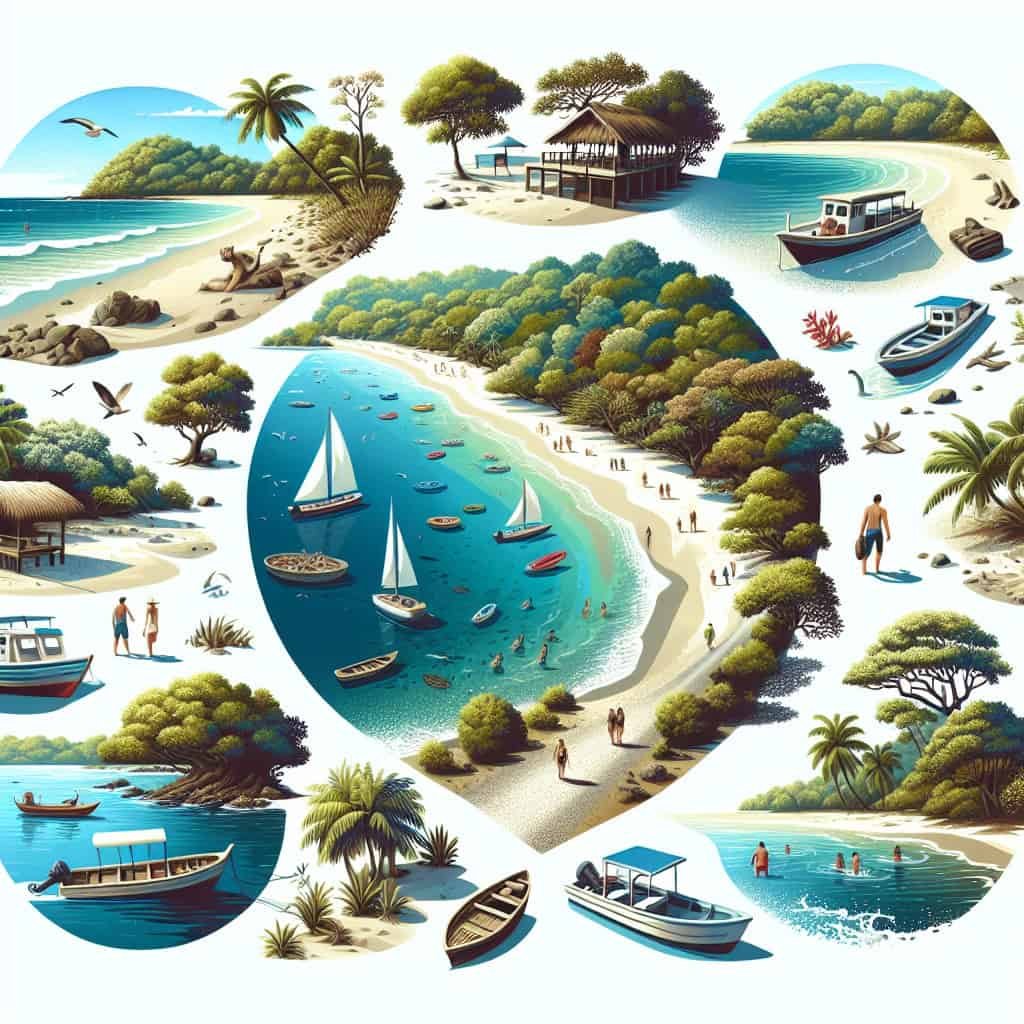
Responsible Tourism Practices
As you enjoy the beauty of Nicaragua’s remote beaches, it’s important to be a responsible traveler. Here are three key practices to keep in mind:
9.1 Respect the Environment
Take care to preserve the pristine beaches and marine ecosystems by practicing responsible environmental behaviors. Avoid littering and dispose of waste properly. Stick to marked trails to avoid damaging fragile vegetation. Respect wildlife by observing from a distance and not disturbing their habitats.
9.2 Support Local Businesses
When visiting remote beaches, consider supporting local businesses. Purchase souvenirs from local artisans, dine at local eateries, and stay at locally-owned accommodations. This helps contribute to the local economy and ensures that tourism benefits the communities that call these areas home.
9.3 Leave No Trace
Follow the “leave no trace” principle by leaving the beaches as you found them. Carry a trash bag to collect your waste, including cigarette butts and small pieces of litter. Avoid removing shells, coral, or other natural specimens from the beach. By practicing these principles, you contribute to the preservation of these beautiful natural environments for future generations to enjoy.
Safety Considerations
While Nicaragua offers incredible beach experiences, it’s essential to prioritize safety. Here are some safety considerations to keep in mind:
10.1 Weather Conditions
Stay informed about weather conditions before heading to the beach. Nicaragua’s coastline can experience strong currents, so pay attention to any warnings or notices at the beach. Be cautious during the rainy season, as heavy rainfall can lead to flooding or dangerous road conditions.
10.2 Water Safety
If you plan on swimming or participating in water activities, be aware of water safety principles. Only swim in designated swim areas, and avoid remote or unmonitored beaches. Pay attention to signs or warnings regarding rip currents, and if caught in a rip current, swim parallel to the shore until you are able to break free and swim back to land. Always wear a life jacket when engaging in water activities like kayaking or snorkeling.
10.3 Personal Security
Exercise caution and be aware of your surroundings, especially in less touristy areas. Avoid carrying large amounts of cash or flashy jewelry that might attract unwanted attention. Keep your belongings secure and use lockers or hotel safes to store valuables. Traveling in groups, especially after sunset, can enhance your personal security.
By following these safety considerations, you can fully enjoy your time at Nicaragua’s remote and less touristy beaches while ensuring your well-being.
In conclusion, accessing remote or less touristy beaches in Nicaragua requires careful planning and research. Choose the region that speaks to you the most, gather information about hidden gems, consider transportation options, and engage with local communities. Pack accordingly, practice responsible tourism, and prioritize safety. By taking these steps, you’ll be able to experience the beauty of Nicaragua’s secluded beaches while immersing yourself in its vibrant culture.
